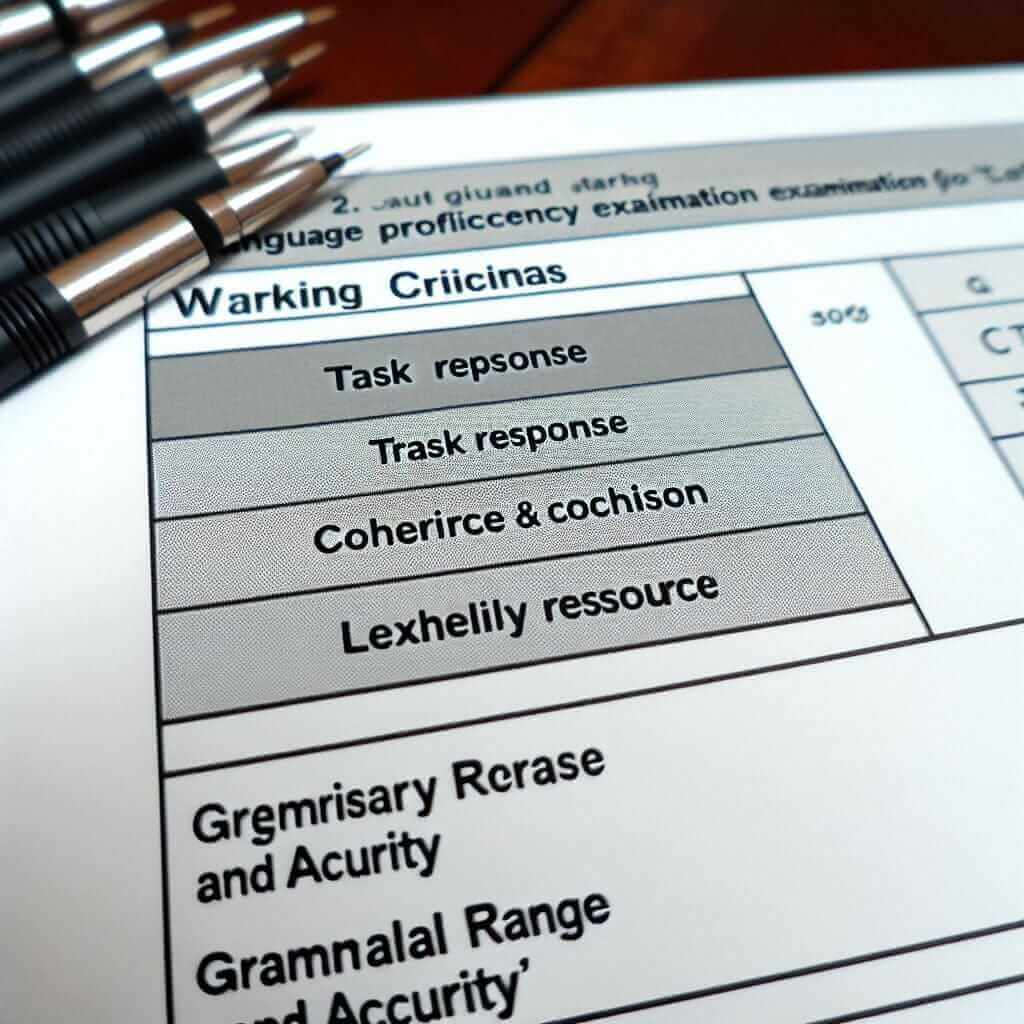Introduction
The IELTS Writing test, particularly Part 2, often causes anxiety among test-takers. Many wonder about the scoring process and how examiners evaluate their essays. Understanding the IELTS Writing Part 2 marking criteria is crucial for achieving your desired band score. This comprehensive guide, written by an experienced IELTS instructor with over 20 years of experience, aims to demystify the assessment process and provide valuable insights to help you excel in this section.
Deconstructing the IELTS Writing Part 2 Marking Criteria
The IELTS Writing Part 2, also known as the essay writing task, evaluates your ability to present a clear and well-structured argument on a given topic. Examiners assess your writing based on four key criteria:
1. Task Response (TR)
This criterion assesses how effectively you have addressed the task prompt. It focuses on:
- Understanding the question: Have you correctly identified the key issues and requirements of the essay topic?
- Presenting a clear position: Have you clearly stated your position on the issue and supported it with relevant ideas and examples?
- Developing your argument: Have you developed your ideas logically and provided sufficient evidence to support your claims?
2. Coherence and Cohesion (CC)
This criterion examines the overall organization and flow of your essay. It focuses on:
- Paragraphing: Is your essay divided into well-structured paragraphs with clear topic sentences?
- Cohesive devices: Do you effectively use linking words and phrases (e.g., however, furthermore, in addition) to connect ideas and create a smooth flow?
- Overall clarity: Is your essay easy to follow and understand?
3. Lexical Resource (LR)
This criterion assesses your vocabulary range and accuracy. It focuses on:
- Range of vocabulary: Do you use a variety of words and phrases appropriate for the topic?
- Accurate word choice: Are your words used correctly and effectively?
- Spelling: Is your spelling accurate throughout the essay?
4. Grammatical Range and Accuracy (GRA)
This criterion evaluates your grammar skills. It focuses on:
- Range of grammatical structures: Do you use a variety of sentence structures (simple, compound, complex) effectively?
- Accuracy of grammar: Are your sentences grammatically correct, with proper tense usage, subject-verb agreement, etc.?
- Punctuation: Do you use punctuation correctly to enhance the clarity of your writing?
Illustrative Examples from IELTS Writing Part 2
Let’s analyze how these criteria are applied using a sample essay prompt:
“Some people believe that the best way to improve public health is by increasing the price of unhealthy food. To what extent do you agree or disagree?”
A high-scoring essay would:
- Task Response: Clearly state a position on whether increasing the price of unhealthy food is the best way to improve public health. The essay will provide relevant reasons and examples to support this position.
- Coherence and Cohesion: Be well-organized with an introduction, body paragraphs (each focusing on a specific point), and a conclusion. Cohesive devices would be used effectively to link ideas.
- Lexical Resource: Demonstrate a wide range of vocabulary related to health, nutrition, and economics. The writer would use vocabulary accurately and avoid repetition.
- Grammatical Range and Accuracy: Showcase a variety of sentence structures with a high level of grammatical accuracy.

Effective Strategies for a Higher Band Score
- Understand the criteria: Familiarize yourself thoroughly with each assessment criterion. This will allow you to tailor your writing to meet the specific requirements.
- Practice regularly: Consistent writing practice is key. Write essays on a variety of topics and then analyze them based on the four criteria.
- Expand your vocabulary: Actively work on improving your vocabulary by reading extensively and learning new words and phrases related to common IELTS themes.
- Master grammar rules: A strong grasp of English grammar is essential. Identify your grammatical weaknesses and work on improving them.
- Seek feedback: Have your writing assessed by an experienced IELTS instructor or a native English speaker. Feedback can pinpoint areas for improvement.
Conclusion
Achieving a high score in IELTS Writing Part 2 requires a good understanding of the marking criteria and consistent effort in developing your writing skills. By focusing on task response, coherence and cohesion, lexical resource, and grammatical range and accuracy, you can significantly improve your chances of achieving your desired band score. Remember, practice makes perfect, so keep writing and refining your skills.